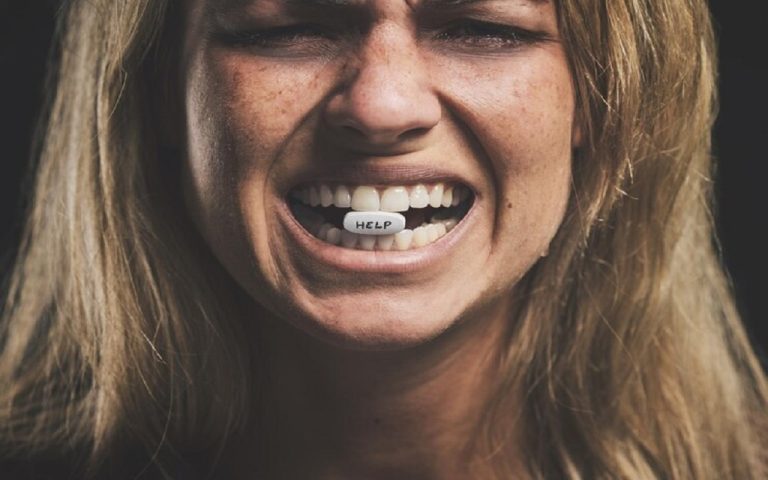You should understand shingles before judging the vaccine. The condition causes more than a skin rash. It leads to lasting pain, nerve damage, and serious health complications. It starts with a virus called varicella-zoster. That virus stays in your body after chickenpox. It can remain dormant for decades. When it reactivates, you may develop shingles.
Many people think shingles only affects the elderly. That belief is incorrect. Younger adults with weak immune systems also face a high risk. The shingles vaccine offers protection. It lowers your chance of an outbreak. It also reduces the pain and severity if you get infected.
What is Shingles, And What are the Symptoms?
The varicella-zoster virus causes shingles (also known as herpes zoster) — the same virus that causes chickenpox. If you’ve ever had chickenpox, that virus remains dormant in your body. Years or even decades later, it can reactivate as shingles.
Common Symptoms
- A painful rash, usually on one side of the body
- Burning, tingling, or itching sensations
- Blisters that scab over
- Fever, fatigue, and headache
The condition can last for weeks. Some people experience postherpetic neuralgia (PHN), which is nerve pain that lingers long after the rash fades.
Why Should You Consider the Shingles Vaccine?
You could believe that shingles is uncommon or minor. You should know the truth. According to the CDC, one in three Americans will have shingles. As you become older, you become more susceptible. Your immune system deteriorates after the age of fifty. The virus may reactivate during that decline.
Postherpetic neuralgia (PHN), which can cause pain for months or even years, affects 10 to 8 percent of shingles sufferers. Thankfully, the shingles vaccine can prevent PHN. According to a study published in the New England Journal of Medicine, Shingrix reduces PHN by almost 85%.
You ought to consider the hazards. You might get discomfort, nerve damage, or eyesight loss without immunization. Additionally, you raise the possibility of infecting other people. You should be aware that vaccinations build immunity in your body. The CDC estimates that one in three Americans will have shingles. According to New England Journal of Medicine studies, Shingrix reduces PHN by over 85%.
What Virus Causes Shingles?
You carry the varicella-zoster virus if you had chickenpox. Most adults over 40 have the virus. It hides in nerve tissues. The virus stays dormant but remains alive. Later in life, it may activate. Stress, aging, or a weak immune system often trigger it.
When the virus is active, it travels along nerves, producing a painful, blistering rash. Usually, the rash only appears on one side of the body. Before the rash develops, you could feel a burning or stinging sensation. Some people get fever, fatigue, and headaches. After the rash heals, the pain may continue.
The virus does not disappear after shingles. It remains in the body. You may face another outbreak later. That is why experts recommend vaccination even if you have already had shingles once.
Which Vaccine Should You Ask For?
You ought to discuss Shingrix with your physician. This is the prescribed shingles vaccine. In the United States, Shingrix was approved by the FDA in 2017. Since it is a recombinant vaccine, it does not contain a live virus. Rather, it increases immunity by using viral protein and an adjuvant.
You need two doses. The second dose comes two to six months after the first. You cannot skip the second dose; without it, your protection drops. Clinical trials show that Shingrix provides over 90% effectiveness. The vaccine protects people 50 years and older and works for those with weakened immunity.
Zostavax was the older live vaccine. It offered only 51% protection and was less effective in people over 70. Due to its lower effectiveness and higher risk, it is no longer recommended in many countries.
Key differences include:
- Shingrix uses protein and adjuvant
- Zostavax uses a live virus
- Shingrix is more effective in older adults
- Shingrix works for people with immune conditions
Who Needs the Vaccine Most?
You should consider your risk level. The CDC and WHO recommend shingles vaccines for adults 50 years and older and for people 19 years and older with immunocompromising conditions.
Risk increases with age. After 50, your immune defenses drop. If you are over 60, your risk rises even more. If you take chemotherapy, steroids, or have HIV, your risk remains high.
Even if you had shingles before, the vaccine still helps. Doctors advise waiting several months after the episode before vaccination. If you previously received Zostavax, you can and should still get Shingrix for better protection.
If you have allergies, autoimmune disorders, or chronic illness, you should speak with a provider. They can assess your suitability.
What Happens If You Skip Vaccination?
You expose yourself to unnecessary risk. Shingles cause pain, disability, and emotional distress. About 30% of shingles cases result in nerve pain lasting longer than three months, which can interfere with sleep, work, and daily life.
The infection can sometimes damage the eye. Herpes zoster ophthalmicus is a disorder that can cause blindness. Others have facial paralysis or hearing issues.
You should consider the cost. Treating shingles may involve painkillers, antiviral drugs, and emergency visits. Some patients require hospitalization. Early vaccination prevents those outcomes.
How Safe Is the Shingles Vaccine?
The shingles vaccination is thought to be risk-free. You can have minor adverse effects. These include injection site discomfort, oedema, or redness. Others complain of low-grade fever, chills, or headaches.
Common side effects:
- Pain at the injection site
- Fatigue
- Muscle aches
- Mild fever
According to the FDA and CDC, fewer than 1 in 10,000 cases result in serious reactions, the most severe of which is anaphylaxis. Providers observe patients after the shot to watch for symptoms. You should inform your doctor of any allergies.
The vaccine does not cause shingles. Shingrix contains no live virus. You cannot get infected from the shot. You can safely take it even if your immune system is weak.
Where Can You Get the Vaccine?
You can receive the vaccine from:
- Local pharmacies
- Primary care doctors
- Immunization clinics
- Public health programs
Medicare Part D and most private insurance plans in the United States cover Shingrix. In Canada, public funding varies by province. The National Health Service offers it to adults aged 70–79 in the UK. In Australia, the National Immunisation Program provides it free for people aged 70–79.
You should call your provider to schedule the first dose. Some areas require a prescription, and others offer walk-in service.
What Legal Protections Exist for Vaccine Injuries?
You should understand legal remedies. The National Vaccine Injury Compensation Program (VICP) in the U.S. handles specific claims. However, Shingrix is not covered under VICP as of 2024.
Your legal path depends on your country if a severe adverse event occurs. You may file a claim through civil court. You may need to prove negligence, product defect, or failure to warn.
So, you should speak with a lawyer familiar with vaccine injury law. They can evaluate your medical records and file deadlines. Some firms specialize in vaccine litigation. Documentation is key.
Do Shingles Vaccines Frequently Give Rise to Legal Cases?
The live virus vaccination Zostavax is subject to legal disputes. Some individuals said that it exacerbated their symptoms or gave them shingles. The company was sued for allegedly failing to warn about the hazards.
There were thousands of lawsuits. While some resulted in settlements or continuing cases, others were dismissed. The outcomes vary.
You should know that Shingrix has not produced major legal disputes. Its design avoids live virus, reducing risk. Regulatory bodies continue to monitor safety data.
What Should You Ask Your Doctor Before the Vaccine?
You should arrive with questions. That helps make informed choices. Your doctor can explain the risks and benefits clearly.
Ask questions like:
- Am I eligible based on my health and age?
- Will my medications interfere with the vaccine?
- How long should I wait after shingles before taking it?
- Are side effects likely in my condition?
- When should I take the second dose?
Clear answers help reduce anxiety. They also support informed consent.
How Can You Report Vaccine Side Effects?
You should report severe side effects. Reports help improve safety systems. The U.S. uses the Vaccine Adverse Event Reporting System(VAERS). Patients, doctors, and pharmacists may submit reports.
In Canada, CANVAS is used through provincial health offices. In the UK, the Yellow Card Scheme is used. Furthermore, reports go to the Therapeutic Goods Administration (TGA) in Australia.
You should report symptoms such as chest pain, trouble breathing, or swelling. Keep your records. Include the date, symptoms, and provider’s name.
What Is the Final Advice on Shingles Vaccines?
You protect yourself and your future by taking action. Shingles can strike at any time. The pain can last for months. The vaccine lowers your risk.
Shingrix is effective, safe, and widely available. Two doses are needed for full protection. Most people feel minor discomfort, and few suffer lasting side effects.
You should consult your doctor, not wait. The earlier you act, the better your chances of avoiding a serious health issue.
Must Read: Fosamax Femur Fracture Lawsuit: Are You Eligible to File a Legal Claim?
Musarat Bano is a content writer for JudicialOcean.com who covers lawsuits, legal news, and general legal topics. Her work focuses on research-based, informational content developed from publicly available sources and is intended to support public awareness. She does not provide legal advice or professional legal services.




